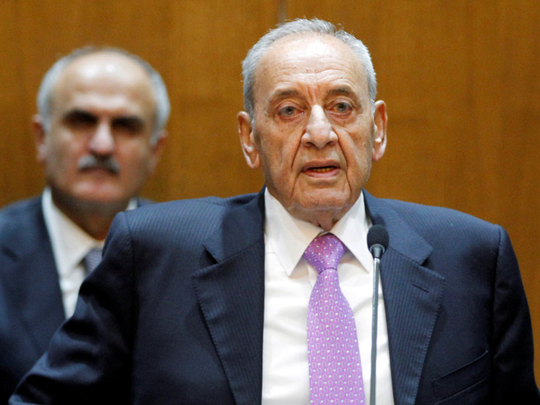
Lebanon is falling under the sway of Iran lock, stock and barrel. This sorry situation didn’t occur overnight; it’s arisen at a slow creep over decades. What’s new is that the feisty forthright opposition has dwindled, whether that’s because rebellion against Tehran’s Lebanese surrogate Hezbollah is too risky in a country plagued by sectarianism or veteran party chiefs have made deals to safeguard their own positions isn’t clear. Perhaps, some with the best of intentions have come to terms with their own impotency in a country where a terrorist entity virtually rules the roost.
Lebanon’s political elite are known for going with the flow. It’s almost impossible to keep abreast of their various flip-flopping positions and alliances because their prime goal is their own political survival. Heroes have no staying-power; they’re either forced to go into self-imposed exile or risk assassination. Others who dare to speak out, rather softly of course, are protected by armed bodyguards or militias. Yet others switch sides to feather their own nests.
Now that Saudi Arabia has pulled the plug on aid to the military and discouraged tourism to Lebanon, motivated by the Lebanese government’s anti-Saudi stances within the Arab League, masks have dropped off. In reality, the kingdom was left with no choice. Hezbollah and its political allies have slammed the Saudi-led coalition’s intervention in Yemen.
Saudi Foreign Minister Adel Jubeir was correct in saying the Lebanese Army has fallen under Hezbollah’s influence.
It wasn’t so long ago that Future Movement officials railed against Hezbollah’s increasing dominance but most of those courageous voices are now increasingly muted.
Downside
Last March, the Gulf Cooperation Council (GCC) finally declared Hezbollah a terrorist organisation due to its “hostile acts” and “endangerment of Arab security”. Given the organisation’s long record of terrorist activities, that classification is well deserved, but for the Lebanese people and the region, there is a downside.
No longer confined by any pretence of foreign policy balance between the two regional behemoths, Iran and Saudi Arabia, the country is fast aligning not only with Iran but also with unsavoury Iraqi Shiite militias and pro-Iranian Yemeni Al Houthi rebels, evidenced by the presence of an Al Houthi delegation and one of Iraq’s most radical clerics and militia chiefs Moqtada Al Sadr in Beirut earlier this week. They weren’t there on vacation. Something is being cooked-up!
Parliamentary Speaker Nabih Berri no longer walks a fine line; he told the Iranian English-language channel that Arab states, in particular Saudi Arabia, must correct their stances towards the Islamic Republic of Iran and he’s recently reaffirmed Hezbollah’s right to retain its weapons on the principle of “army-people-resistance”.
He’s also pushing hard for proportional representation, which would undoubtedly mean many more parliamentary seats for Hezbollah and its partners Amal, the Free Patriotic Movement and others within the March 8th bloc — currently restricted under an agreement sealed with Saudi mediation.
From bad to worse
Berri claims he’s keen to end the stagnation. The country truly is without a president, a budget and the wherewithal to cleanse the streets, with rivers from health-threatening garbage overflowing. Handing more power to Hezbollah, thus officially rendering Lebanon an Iranian satellite, will create even worse problems.
Early last year, Iranian officials were boasting that Tehran controlled four Arab capitals — Baghdad, Damascus, Beirut and Sana’a, except that the capital of Yemen has been wrenched from Iran’s grasp thanks to the efforts of the Saudi-led coalition. Iran doesn’t occupy Arab countries directly; it pays and arms those who do its dirty work.
Baghdad is a lost cause. Iraqi Prime Minister Haider Al Abadi regularly praises Iranian military advisers in the country, supports pro-Iranian Shiite militias, and now says should oil talks with Iraq’s Kurdish region fail, the government will use Iran as a conduit through which to sell Iraqi oil. The jury’s still out on Damascus but if Syrian President Bashar Al Assad remains, Syria will be firmly under the heel of Tehran and its ally Russia.
Beirut is slipping away against the will of the Lebanese majority. It’s easy-going, liberal façade will be maintained for a while.
The veteran long-in-the-tooth politicians will make appropriate noises depending on which side they’re talking with. But unless Hezbollah’s grip is loosened and Iran’s shadow removed, at stake is its economy, its international diplomatic standing, its relations with the Sunni Arab world and its unique identity.
Linda S. Heard is an award-winning British political columnist and guest television commentator with a focus on the Middle East.









